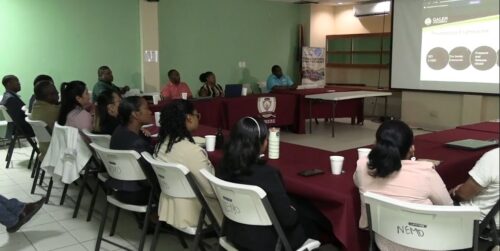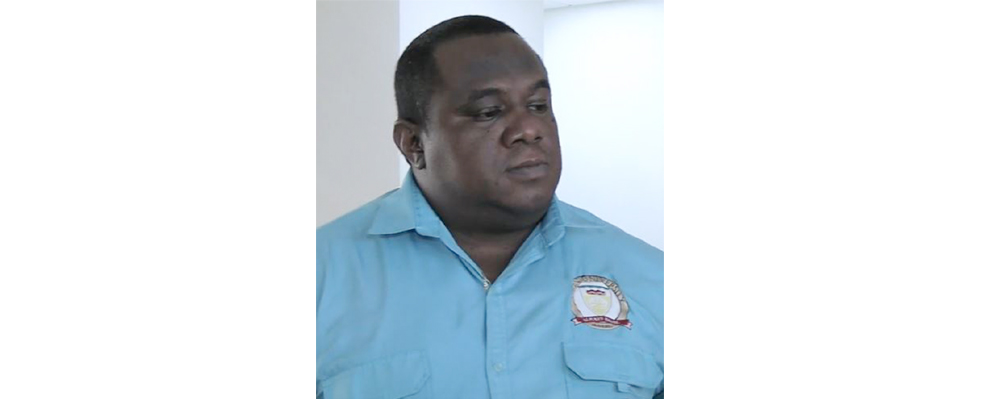Zain Dueheney, Coordinator for Galen’s postgraduate program
by Charles Gladden
BELIZE CITY, Fri. July 4, 2025
Galen University hosted a National Disaster Risk Management Research Forum on Friday, July 4, at the National Emergency Management Organization (NEMO) headquarters in Belmopan.
The forum, which is the first of its kind in the country, was conducted by students enrolled in Galen’s postgraduate Disaster Risk Program. It is a research-based program in which students focus on the community as a primary source of information which they gather for their final project.
“Our program is unique because it has a model specifically designed to look at the integrated protection of women and children in disasters and emergencies. We speak about vulnerable populations, vulnerable groups; but there’s a protocol that was developed in Belize by the Caribbean Disaster Emergency Management Agency (CDEMA) that is rolled out in the other parts of participating states that looks at safe school initiatives, how to protect children in disaster situations, looks at school continuity,” said Zain Dueheney, Coordinator for Galen’s postgraduate program.
“Time and time again, we have used schools as hurricane shelters, so we disrupt that learning process while people are seeking refuge from the effects of these hazards. We examine how we develop plans, assuring that children are in a safe space while these incidents are occurring, because it can be traumatic. How do we offer psychosocial support to children after they come in contact with these hazards, and this disaster occurs? And how do we ensure that learning occurs simultaneously with trying to recover from the impacts of these disasters? And recovery is the hardest part of the disaster risk management cycle; it takes a long time, depending on the category of storm we receive,” he added.
While the forum is heavily focused on natural disasters, it also directs attention to other types of disasters, such as manmade conflicts, cyberattacks, etc.
“[It] allows us to bring back that information to the wider security forces as to how we know to mobilize, and how we deploy our forces and our troops to better array ourselves in creating a better impact. It will remove those proverbial blinders, rather than looking at one concept and not taking the additional risks … prevention that is required when we move troops or soldiers into the wider area,” said Zenon Ciego, a member of the Belize Defence Force.

Before the program started, there was a single-digit number of experts in the field in Belize; but 42 students are set to complete the one-year course, which will considerably increase that number.

